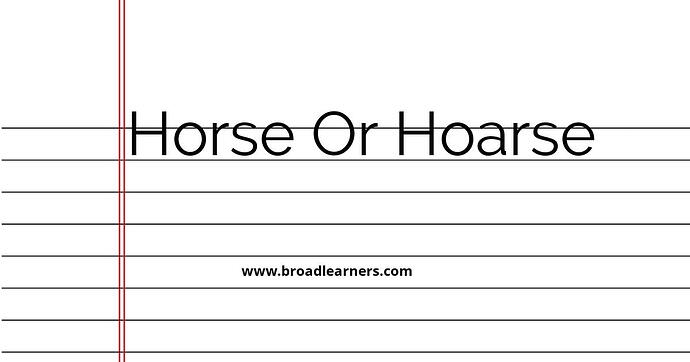'Horse' and 'hoarse' are commonly confused words in English grammar. Understanding the difference between 'horse' and 'hoarse' is important to use them correctly in written and spoken English.
'Horse' is a noun that refers to a large, four-legged animal commonly used for riding, racing, or pulling carts. It is an animal that is often domesticated and can be found in various breeds and sizes.
'Hoarse' is an adjective that describes a person's voice or a sound that is rough, harsh, or raspy. It is often used to describe a voice that is affected by a sore throat, laryngitis, or other vocal issues.
Let's take a closer look at the meanings and usage of 'horse' and 'hoarse'.
| 'Horse' | 'Hoarse' |
|---|---|
| The word 'horse' is a noun that refers to a large, four-legged animal commonly used for riding, racing, or pulling carts. | The word 'hoarse' is an adjective that describes a person's voice or a sound that is rough, harsh, or raspy. |
|
|
To remember the difference between 'horse' and 'hoarse', it can be helpful to associate 'horse' with the animal itself and 'hoarse' with a rough or raspy voice.
Here are some examples of correct usage:
- I enjoy horseback riding in the mountains.
- She had a hoarse voice after cheering at the concert.
- The hoarse sound of the engine indicated a problem.
- The jockey rode the horse to victory in the race.
Remembering the correct usage of 'horse' and 'hoarse' will improve your grammar and communication skills.
